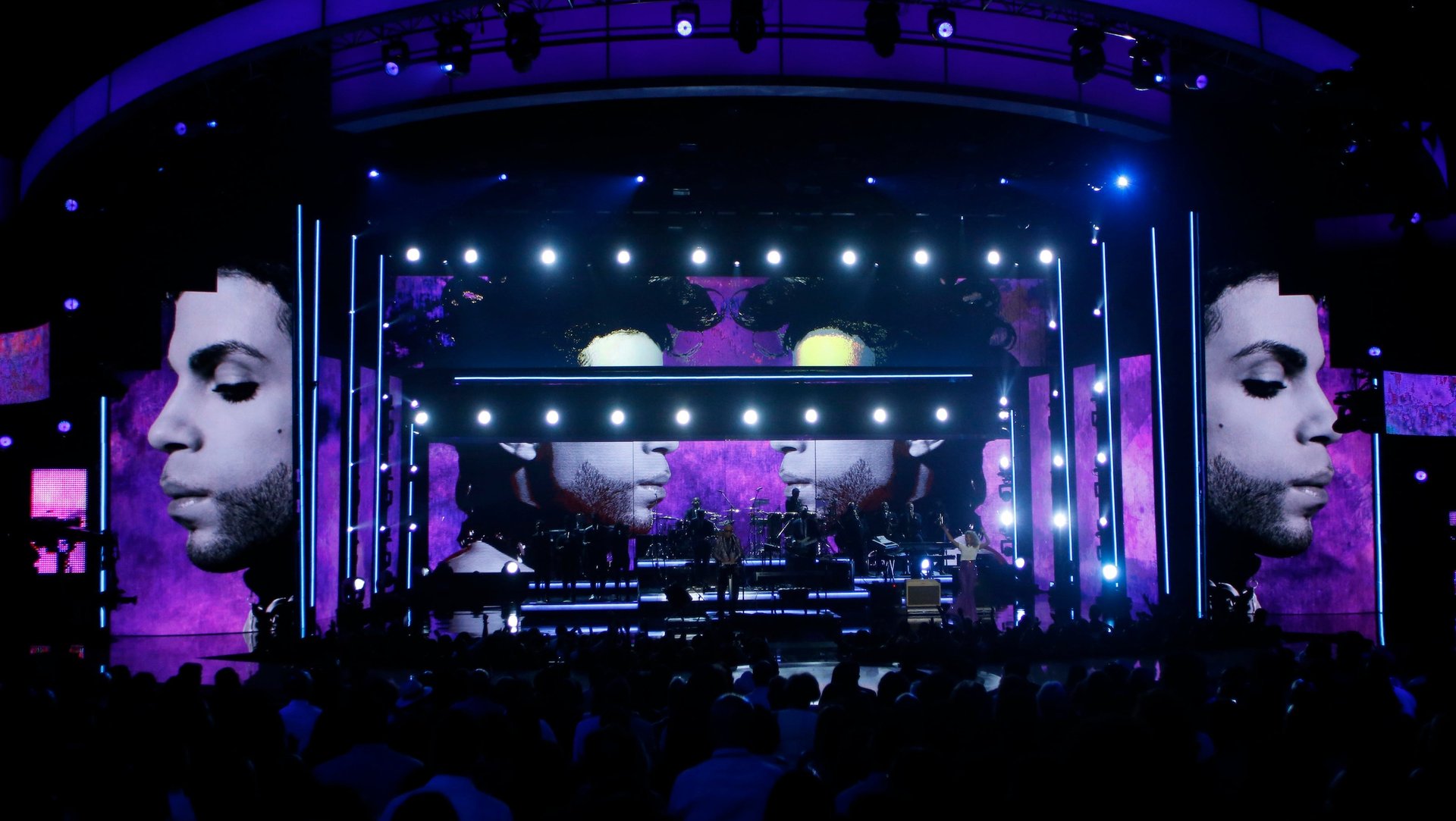Prince is our Franz Kafka
Shortly before succumbing to tuberculosis in Prague in 1924, Franz Kafka penned a letter to his friend, Max Brod, asking for all his unpublished work—manuscripts, diaries, private letters, sketches, and all—to be “burned unread.”


Shortly before succumbing to tuberculosis in Prague in 1924, Franz Kafka penned a letter to his friend, Max Brod, asking for all his unpublished work—manuscripts, diaries, private letters, sketches, and all—to be “burned unread.”
Kafka died, the letter was discovered, and Brod promptly ignored it. Thanks to him, stories such as The Trial and The Castle, which Kafka didn’t ever want printed, are today celebrated as seminal works of 20th century literature; the author’s name is attired in global renown. But the posthumous publication of Kafka’s work also triggered a convoluted legal battle over who really owns them—as well as an ethical dispute over whether they should’ve been released.
One year ago today, on April 21, 2016, Prince died in his Paisley Park home in Minnesota at the age of 57. The iconic musician has since been caught up in posthumous conflict that is quickly becoming kafkaesque.
Tired, yet furious, after a decades-long copyright fight with Warner Bros, which at one point led him to write “slave” on his face and forsake his name for an unpronounceable symbol, Prince devoted the latter half of his career to fighting the record industry for control of his own work. ”If you don’t own your masters, the masters will own you,” the artist became famous for saying, repeating it in interview after interview. He only put one song on Spotify when he was alive, choosing to keep his catalog restricted to one streaming platform (Jay Z’s Tidal, which offers higher rates for artists).
He hoarded thousands of hours of unreleased music in a bank vault in his house. The scant collection of Prince music available on YouTube is mostly recorded from public events like the Super Bowl.
Yet in the year since his death, Prince—who didn’t leave behind a will assigning ownership of his assets—has had that prized control slowly but viciously torn from him.
The late musician’s estate, though facing ownership contestation, recently brokered deals to make his Warner Bros. catalog widely available on Spotify, Amazon Music, Napster, Apple Music, and more. Despite ongoing legal tussles, Warner Bros has gone ahead and announced it will release troves of new music from Prince’s Paisley Park vault over the course of this year. Both parties have pointedly ignored the deep, wretched irony of the fact that the artist would have detested either decision. What makes it worse in this case is that it’s members of Prince’s own family involved in the exploitation of his work.
There is an argument to be made for ignoring a creator’s wishes in favor of gifting the world with his talent; but it holds up better for a quiet figure like Kafka—who lived in obscurity and didn’t want to be known at all—than for a pop musician like Prince, who had already, willingly sold 100 million records, snagged seven Grammy Awards, and earned a place in the Rock and Roll Hall of Fame before his death.
What Prince cherished most was his independence, and it’s what is now lost from him. “Prince wanted control over his music,” Jeff Price, a music entrepreneur and the founder of royalty collection agency Audiam, tells Quartz. “It was his. He wrote it and recorded it. His simple, reasonable request was to determine how it was used and how much he should get paid for that use.”
Just this week, a new legal complication arose when sound engineer George Ian Boxill tried to release six unpublished Prince songs on an EP called Deliverance. Prince’s estate (perhaps hypocritically) cried exploitation, and a judge blocked the release. For now.
Even in non-music matters, Prince’s wishes have been defied: though those close to him described him as an intensely private person, the circumstances of Prince’s death have been pried into with hungry zeal. On Monday, the New York Times flashed a news alert specifically for the release of court documents (paywall) revealing his death was due to opioid addiction. While such scrutiny may be to be expected of such a high-profile death, it burns all the more that the musician did everything he could to escape that.
It’s not as if the attention can’t be avoided, either. When J.D. Salinger died in 2010, his estate kept everything unpublished on lockdown and refused to release any of the reclusive writer’s secrets, per his wishes.
If Kafka was the author who didn’t want to be read, then Prince was the musician who didn’t want his life read into. Today, one year after his passing, we can pore over all the newly unearthed minutiae of his life and happily celebrate the release of every unpublished track from his treasured vault—but none of that was what he wanted.
Prince’s private Paisley Park home, by the way, has now been turned into an open museum. It sells its own ping pong balls.